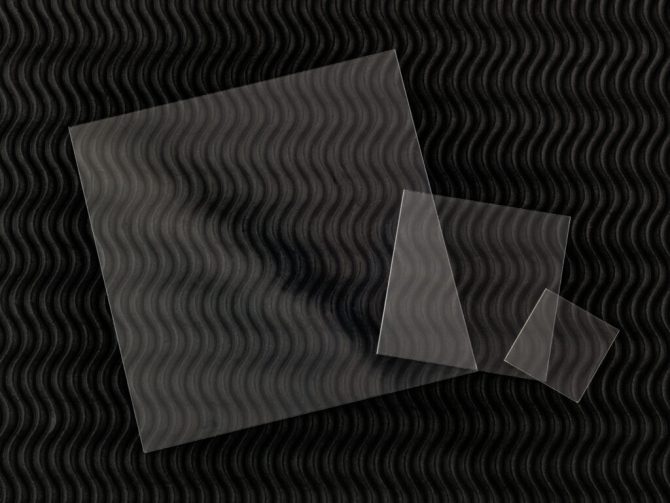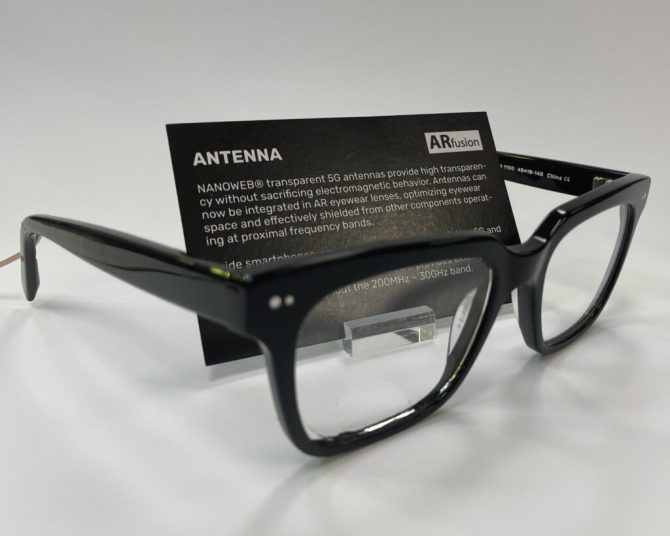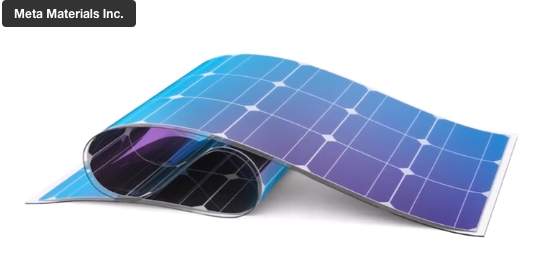
Meta Materials’ solutions featured in Project Arrow car
EP&T Magazine
Electronics Production / Materials Engineering Editor Pick Flexible materials productionHalifax-based tech materials developer features its automotive solutions at CES
Meta Materials Inc. a Halifax NS-based developer of high-performance functional materials and nanocomposites, announced that NANOWEB automotive product applications have been featured in the Project Arrow exhibition during the CES show in Las Vegas this week.
The Automotive Parts Manufacturers’ Association (APMA) of Canada launched the first, original, full-build zero-emission concept vehicle named Project Arrow, the largest commercial vehicle collaboration in Canadian automotive history.

Meta Materials Inc. has incorporated some of its high-performance functional materials in the Project Arrow vehicle – demonstrated during the CES Show this week. Source: Meta Materials
Many emerging technologies have historically been adopted by the automotive industry to improve performance, safety, and comfort. Meta Materials has developed several technologies that uniquely benefit the automotive industry and its customers, with a clear focus on high performance, sustainable solutions. Automotive EV units are projected to grow at a 22% CAGR globally, from 2021 to 2030, with revenues surpassing $1-trillion in 2030, according to IDTechEx.
“We’re proud to be part of the Project Arrow team, working together with Canada’s automotive supply sector and post-secondary institutions to deliver this game-changing vehicle designed from the bottom up specifically for the Canadian environment and its harsh winter conditions,” said George Palikaras, president and CEO. “We’re poised to turn powerful concepts into practical applications, utilizing invisible nanocomposite technologies.”

NANOWEB is a transparent conductive film made of an invisible metal mesh that can be fabricated onto any glass or plastic surface, and it can be tailored to generate heat on-demand to provide efficient deicing and defogging for automobiles.
According to Palikaras, Meta Materials’ automotive solutions “do more with less” by addressing the need for more efficient and sustainable material use, with an added benefit of improved functionality. The firm’s NANOWEB product offers multiple applications such deicing and defogging, EMI shielding, electrochromic glass to reduce heat buildup in summertime and act as a vehicle antenna, while remaining completely transparent.

Meta Materials has developed the world’s most transparent antenna in prescription lenses for extended reality applications. Source: Meta Materials
NANOWEB is a transparent conductive film made of an invisible metal mesh that can be fabricated onto any glass or plastic surface, and it can be tailored to generate heat on-demand to provide efficient deicing and defogging for automobiles. It can be embedded into glass with no visible lines. Many vehicles today either use bulky systems to blow air or have heat element lines that are visible on a glass surface for defrosting a window, especially on the rear window. The technology can also be tailored to function as an antenna on vehicle sunroofs, windshields, and windows, to protect LIDAR sensors from electromagnetic interference, and it may be used to control an electrochromic layer, adjusting the tint of a sunroof from light to dark at the touch of a button.
Earlier this year, Meta Materials signed an MOU with PPG, a global paint, coatings and specialty materials manufacturer, to develop a dynamic dimming functionality while applying NANOWEB technology. In addition, the firm’s nano-optic metamaterial technology has been used to provide anti-counterfeiting security features for government documents and currencies and authentication for brands.

